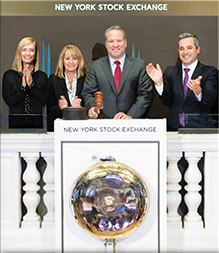Protecting retirement assets through analysis of various topics, such as time horizon, income needs, risk tolerance, and more, is often best discussed with a wealth advisor acting under fiduciary standards. A prudent wealth advisor closely monitors their clients’ normal activities and actions to help safeguard against potential elderly exploitation of assets. Elderly exploitation, commonly referred to as elder abuse, extends to all aspects of a person’s life and, unfortunately, financial elder abuse has risen in recent years and continues to do so. As clients age, the protection of their assets from others extends to those within their closest inner circle. With financial elder abuse taking many different forms, and with the advent of the internet, older generations are even more at risk. The United States’ largest generation, the baby boomers, are either well into retirement or just entering it. By being aware, being involved, and preparing for decreasing capacity through the creation of an estate plan, all generations can help mitigate the risks they face.
Although 1 in 24 people have abuse reported, it is estimated a staggering one in ten people potentially fall victim to financial elder abuse. Being aware is the first step to safeguarding ourselves and our loved ones. With victims age 60 and older estimated to lose over $28billion on an annual basis, understanding that the issue extends beyond financial records is key. The behaviors exhibited by an individual can be a crucial indicator of abuse. Is the individual withdrawn or agitated without reason? Is the individual’s personal hygiene lacking? Is their spending erratic? Has someone new entered into the scene recently? With any unusual change in someone’s behavior, it is prudent to ask questions and show concern. Asking questions in an indirect manner is best as these can be difficult topics for some to digest. Keep in mind that diminishing capacity could be the cause for some changes in behavior, but is also often the reason someone may be targeted. As a person experiences diminishing capacity, feelings of embarrassment and loneliness may lead to denial of the topic.
Staying involved is of utmost importance in the fight against elder abuse, both for an individual and their loved ones. Financial abuse is unfortunately a widespread issue. A person may fall victim through various avenues including, but not limited to, sweetheart scams, imposters posing as tech support, real estate professionals, and IRS or government agents, and by winning unknown contests. An unknown, but important fact, is over 60% of financial elder abuse victims are mistreated by their family members. When protecting someone else, regular check-ins help prevent all forms of abuse. While protecting one’s self, it is important to maintain healthy relationships as the closest inner circle of friends and family may notice changes of behavior before others.
Getting ahead of diminishing capacity by creating an estate plan while still cognitively and mentally capable, will help to lessen the risk of elderly exploitation to one’s self and loved ones. While creating an estate plan, consider forming a team of professionals. Professionals including an accredited wealth advisor, an estate planning attorney, and a certified tax professional not only ensure a person’s wishes are carried out, but also provides another line of defense against elder abuse. These professionals are continuously educated in their respective fields as well as in serving elderly clients. As a person experiences the onset of diminished capacity or elder abuse their chosen team of financial professionals may be the first to notice changes in behavior and erratic spending.
Click here to read more of my RetireMint articles. Follow me on Twitter.
This document is for educational and informational purposes only and does not constitute an advertisement or solicitation of any securities or investment services provided Mainstay Capital Management, LLC (“MCM”). This document should not be construed as investment, tax, or legal advice, or a solicitation, or a recommendation to engage in any specific strategy. MCM is an independent investment adviser registered with U.S. Securities and Exchange Commission. MCM specializes in workplace savings plan portfolio management and retirement planning advice for active employees and retirees. This document was prepared by MCM primarily based on data collected and analyzed by MCM. The opinions expressed herein are those of MCM alone and are for background purposes only. MCM does not purport the analysis to be full or complete or to constitute investment advice and should not be relied on. In addition, certain information contained herein or utilized to draw the conclusions contained herein has been provided by, or obtained from, third party sources. While MCM believes that such sources are reliable, it cannot guarantee the accuracy of any such information and does not represent that such information is accurate or complete. All materials and information are provided “as is” without any express or implied warranties by MCM. MCM charges its fee based on a percentage of assets under management, which creates an incentive and conflict of interest to increase assets in that account. Furthermore, MCM has two different fee schedules, and therefore has a conflict of interest when assets or accounts move from the lower fee schedule to the higher fee schedule. Opinions expressed are subject to change without notice and are not intended as investment advice or to predict future performance. Consult your financial professional before making any investment decision. Please see MCM’s Form ADV Part 2A and Form CRS for additional information.







